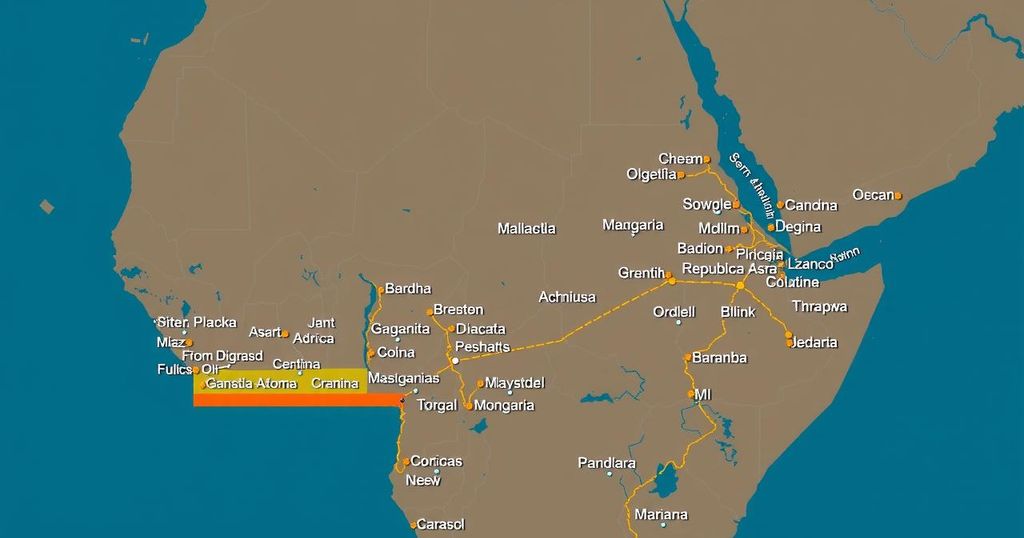Climate Change and Security Challenges in the Central African Republic
The Climate, Peace and Security Fact Sheet for the Central African Republic outlines the significant climate-related and security challenges facing the country. While some progress has been made in improving security, ongoing conflicts and vulnerabilities due to climate change remain critical issues. The situation is aggravated by the influx of pastoralists and external conflicts, highlighting the urgent need for coordinated international intervention to promote stability and resilience.
The Climate, Peace and Security Fact Sheet pertaining to the Central African Republic (CAR) elucidates the multifaceted challenges the nation faces stemming from both climate-related disturbances and persistent conflict. While the security scenario has witnessed some improvements in recent years, it remains precarious due to ongoing skirmishes involving groups such as the Coalition of Patriots for Change (CPC) and various self-defense groups, as well as the engagement of mercenaries like the Wagner Group (identified as Africa Corps). Compounding these security issues, the CAR is exceptionally susceptible to the adverse effects of climate change. This vulnerability is attributable to factors such as ineffective governance, mismanagement of natural resources, and insufficient resilience among communities. As climate conditions deteriorate, transhumant pastoralists are compelled to migrate earlier into CAR from surrounding regions, leading to heightened tensions over resources. Furthermore, the repercussions of conflict in neighboring nations, particularly the ongoing war in Sudan, have exacerbated the humanitarian crisis in CAR, notably affecting the Vakaga and Haute-Kotto prefectures. The Fact Sheet advocates for the international community to undertake a concerted and multifaceted response to these intersecting challenges, thereby promoting peace and security in a nation beleaguered by both climate variability and conflict.
The Central African Republic is situated in a region significantly affected by both climate change and sociopolitical instability. The CAR’s vulnerability stems from a combination of environmental factors, such as climate variability, and structural challenges such as weak state institutions and inefficient management of natural resources. This combination has led to low resilience within households and communities, complicating the situation further. Armed conflicts involving various factions continue to disrupt peace, hamper access to resources, and displace communities, creating additional obstacles to security and humanitarian efforts. Climate change exacerbates these issues, thrusting pastoralists into competition for limited resources and heightening local tensions.
In summary, the Central African Republic presents a complex interplay of climate and security challenges exacerbated by ongoing conflict and environmental deterioration. Both local and international efforts must be aligned to address these issues effectively. The international community is encouraged to develop strategies that incorporate peace-building initiatives alongside climate adaptation measures to foster stability and resilience within CAR. The intertwining nature of these problems necessitates a holistic approach to mitigate their impacts, safeguarding both the environment and the well-being of the Central African people.
Original Source: reliefweb.int




Post Comment